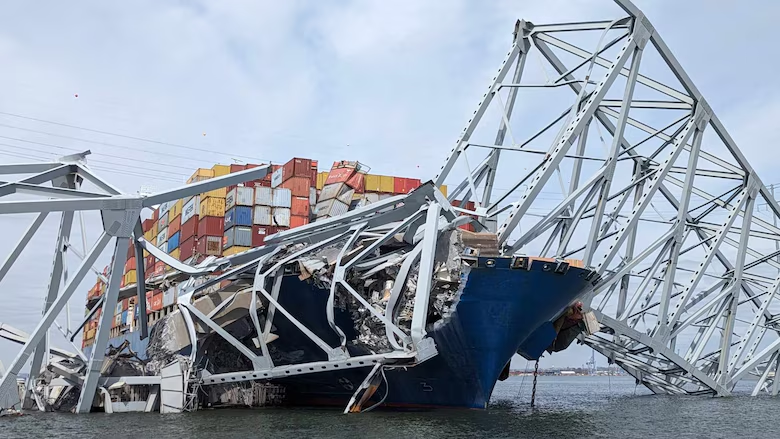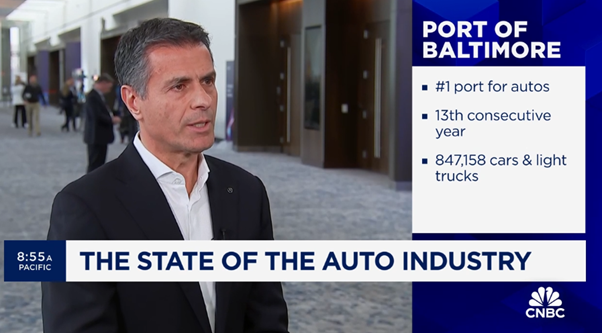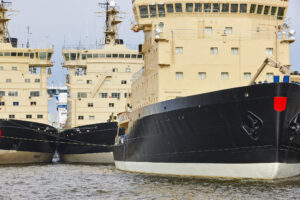
The collapse of the Francis Scott Key Bridge, one of the nation’s largest shipping hubs, will do “significant” economic damage not only to the region but to the entire country, industry experts and US Secretary of Transportation Pete Buttigieg warned.
The impact of this incident is going to be felt throughout the region and really throughout the supply chains and the “road to recovery is going to be big, long and not inexpensive,” Pete Buttigieg said in a live interview on CNN.
The Singapore-flagged container ship, DALI with a GT of 95,128, allided with the Francis Scott Key Bridge crossing the Patapsco River, Baltimore, USA at approximately 01.30 hours (local time) on 26 March 2024.
Vessel traffic into and out of the Port of Baltimore has been closed until further notice as recovery and cleanup efforts are underway. That port, according to several reports, handled a record amount of cargo last year.
Over 30,000 vehicles cross the Francis Scott Key Bridge on a daily basis.
It’s also the top port in America for both imports and exports of automobiles and light trucks.
The Baltimore bridge collapse has prompted many companies to assess operations after the closure of the busiest U.S. port.
MSC Mediterranean Shipping Company SA confirmed in an update on March 26 that the container vessel “DALI” was carrying MSC customer cargo, adding that the company has “no choice but to omit Baltimore from all our services for the foreseeable future, until the passage to port is reopened and declared safe.”
The giant owner expects this to take several months and all MSC customer cargo will be rerouted and discharged at alternative ports in the meantime.
“Passage to and from Baltimore is at this time impossible and will not be reestablished for several weeks if not months,” MSC noted yesterday in a customer notice regarding the Francis Scott Key Bridge Baltimore situation.
Amidst the Baltimore Bridge collapse and subsequent port closure, the spotlight falls on the automotive industry’s resilience in navigating supply chain disruptions.
Christian Roeloffs, founder and chief executive of online container logistics platform Container xChange, discussed the potential impact on the industry with CNBC.
“Delays in cargo movement could lead to inventory shortages, affecting businesses that rely on timely deliveries, like the automotive industry which requires assemblies coming from different parts of the world,” he said.
Mercedes-Benz USA CEO Dimitris Psillakis told CNBC on Tuesday that Baltimore was one of the German company’s four distribution centers in the U.S., but that other entry ports such as Brunswick, Georgia, would help ease import pressures.
“It’s too early to see the effects, the situation is still developing and we will do our best to make sure that we find ways to supply the vehicles out in the market, but it’s still too early to judge,” Psillakis added.
Experts in the market have warned that despite disruptions in Baltimore there could be long-term impacts on global trade and insurance premiums as a result of Monday’s incident.
Pete Buttigieg told CNN news during an interview that the president has been clear that every federal resource will be directed toward getting back to normal.
Transportation Secretary Pete Buttigieg described it as the country’s largest vehicle handling port that is now out of commission until that channel can be cleared. “And a bridge that took five years to build,” as Buttigieg said.
Many ships are currently trapped in the port, the Washington-based Bureau of Transportation Statistics (BTS) said yesterday, adding that there are 3 bulk carriers, 1 vehicles carrier, 2 general cargo ships, 1 oil/chemical tanker, and 3 logistics naval vessels plus the container ship behind the fallen bridge in the port of Baltimore, plus 1 vehicle carrier in the port but outside the bridge and 9 bulk carriers, 1 vehicles carrier, and 2 general cargo vessels at anchorage beyond the bridge as of noon on March 26.
B-roll of NTSB investigators aboard the cargo ship Dalihttps://t.co/Ve2bMTbBrJ
— NTSB Newsroom (@NTSB_Newsroom) March 28, 2024



